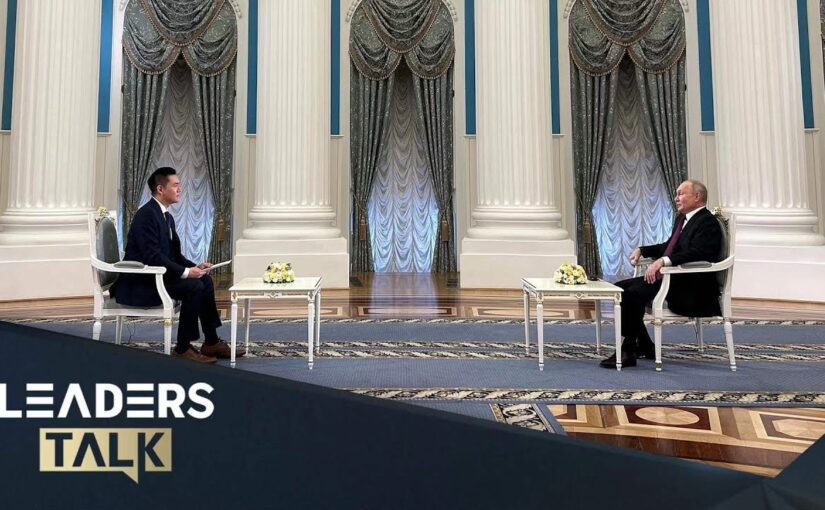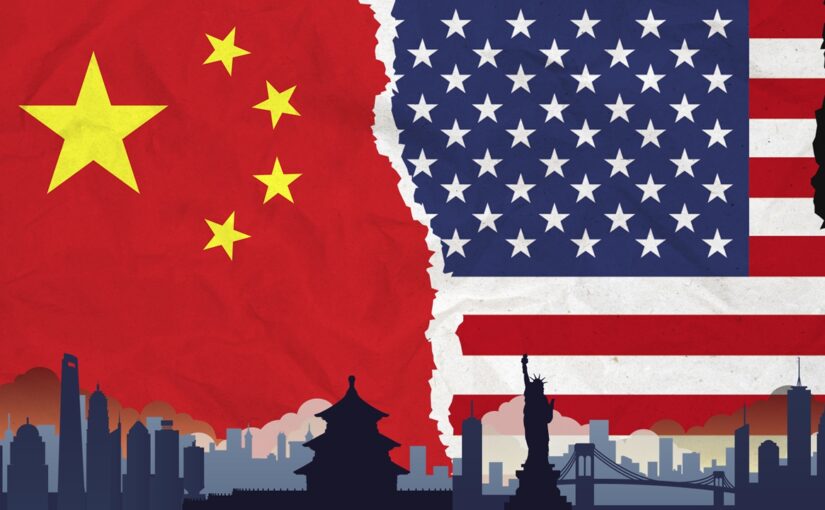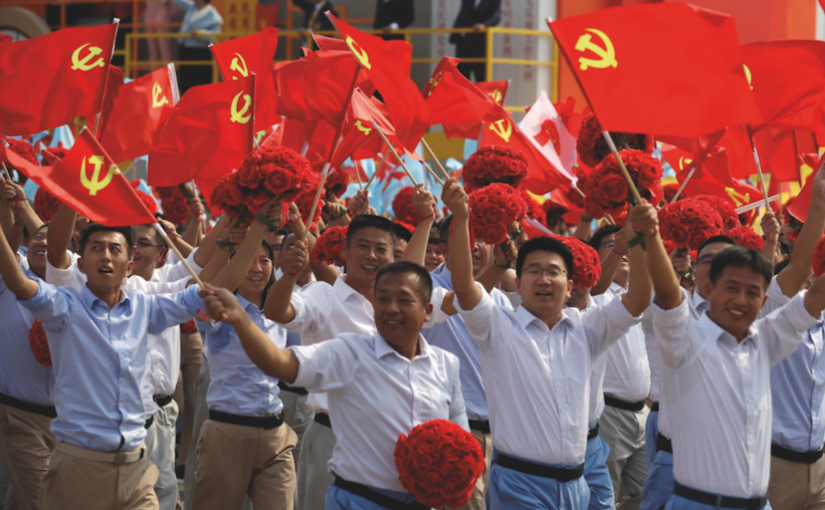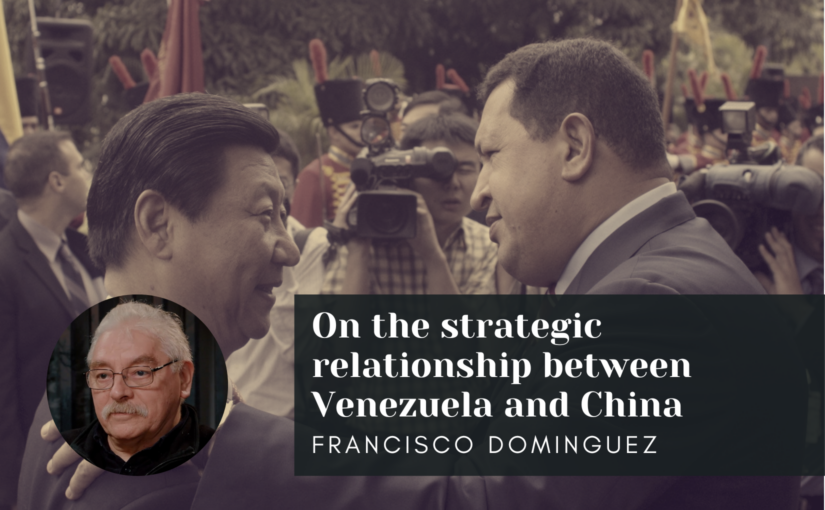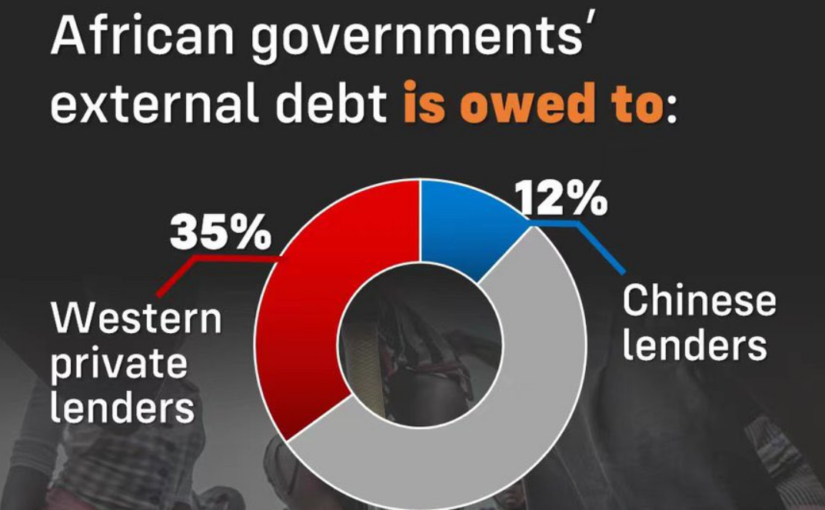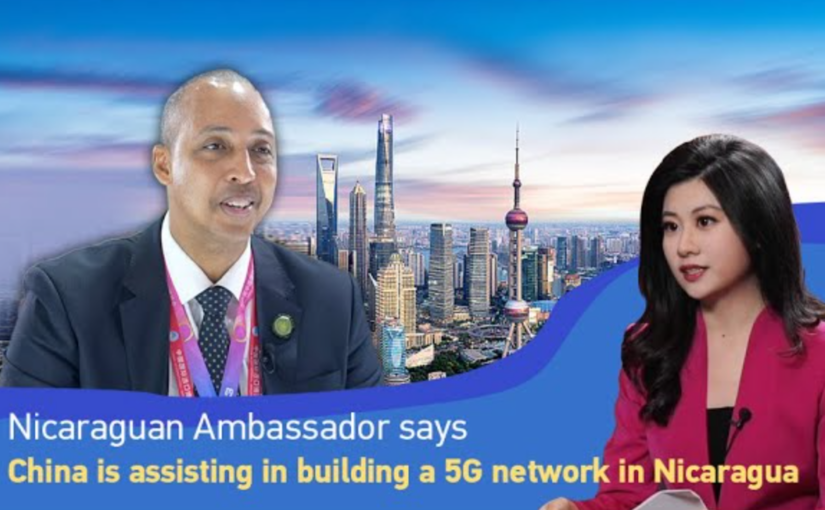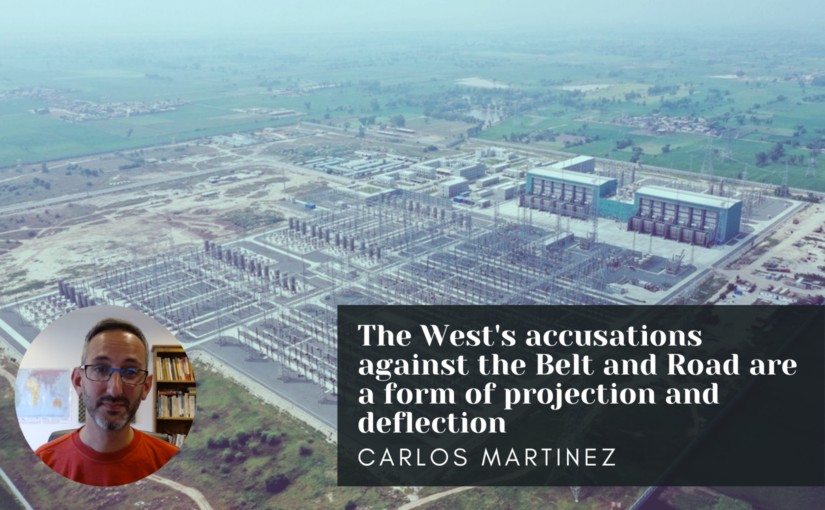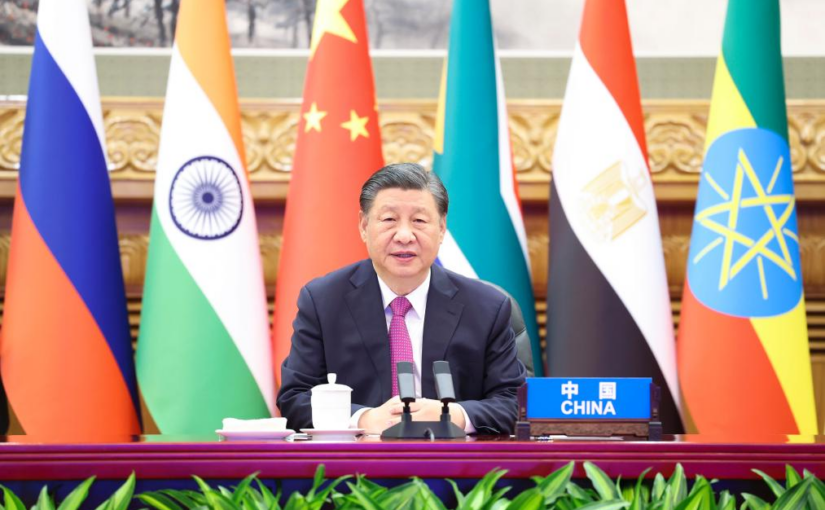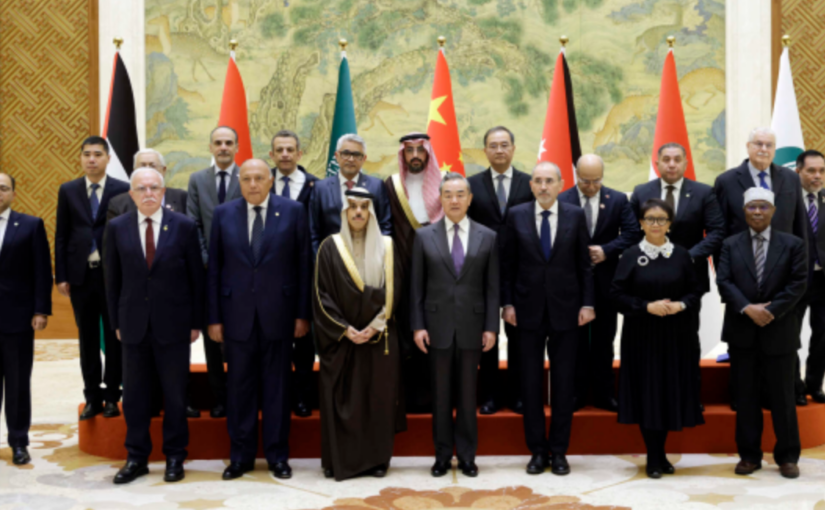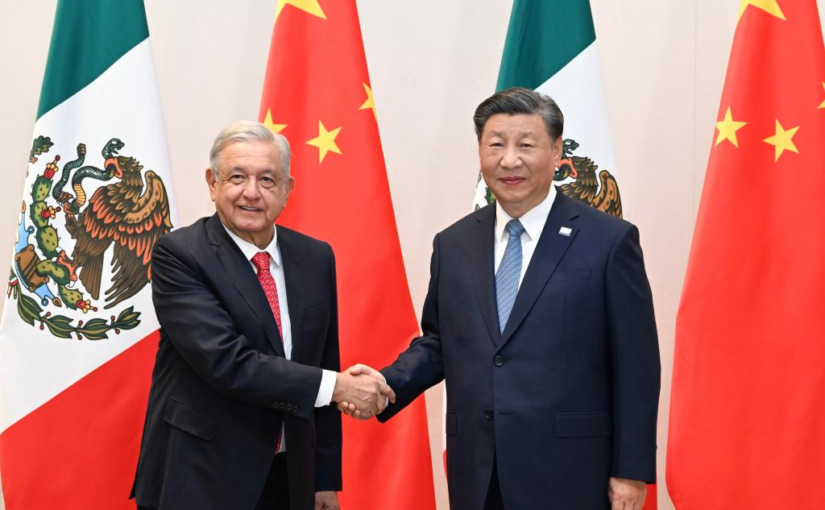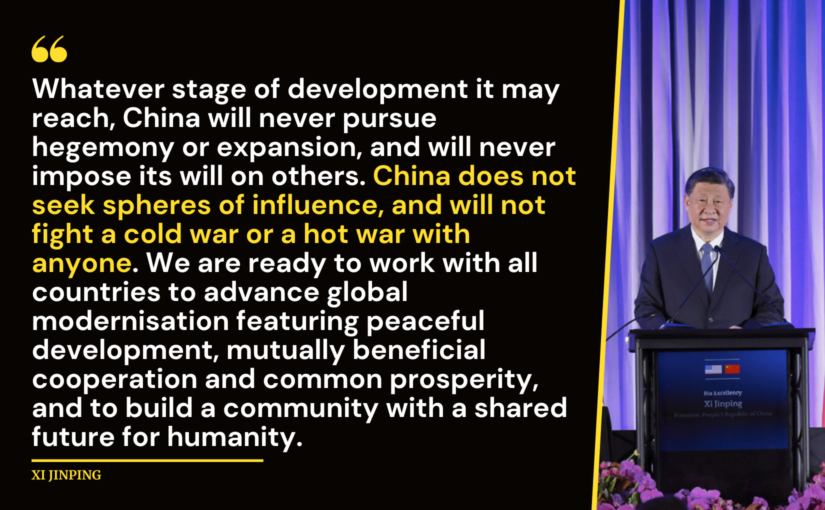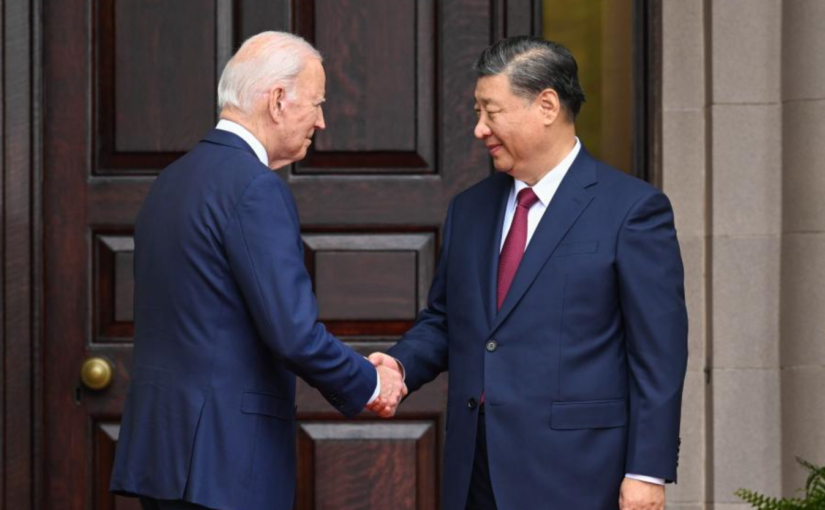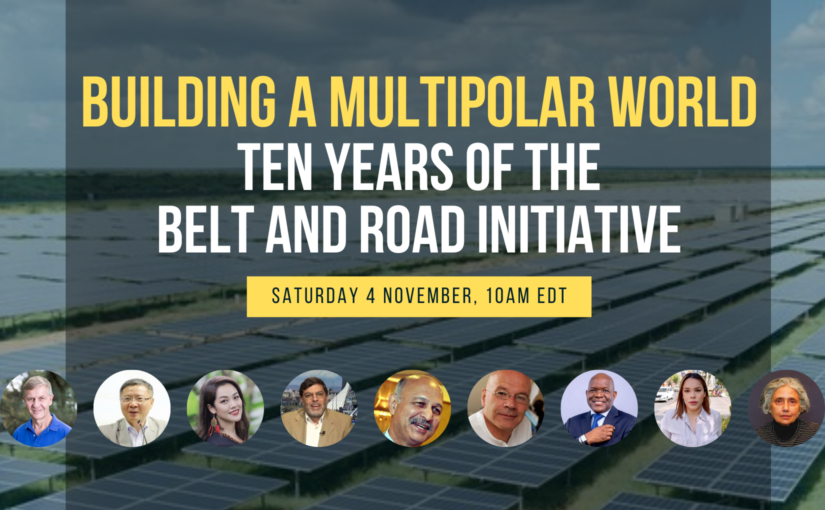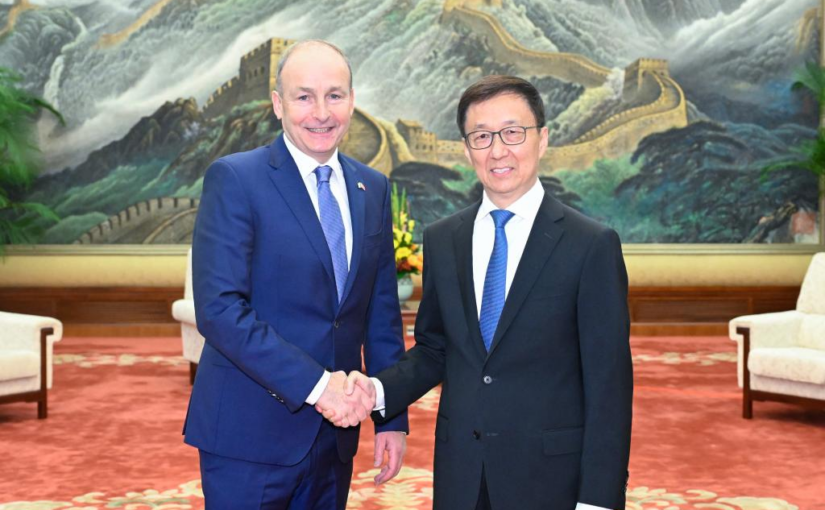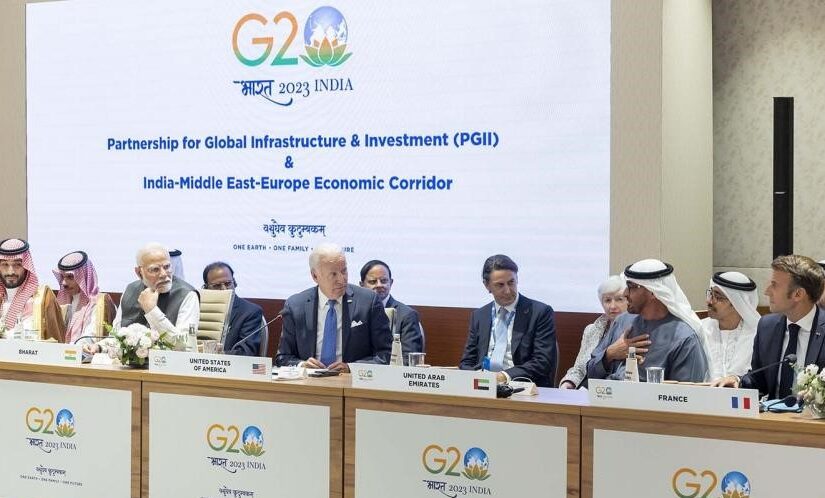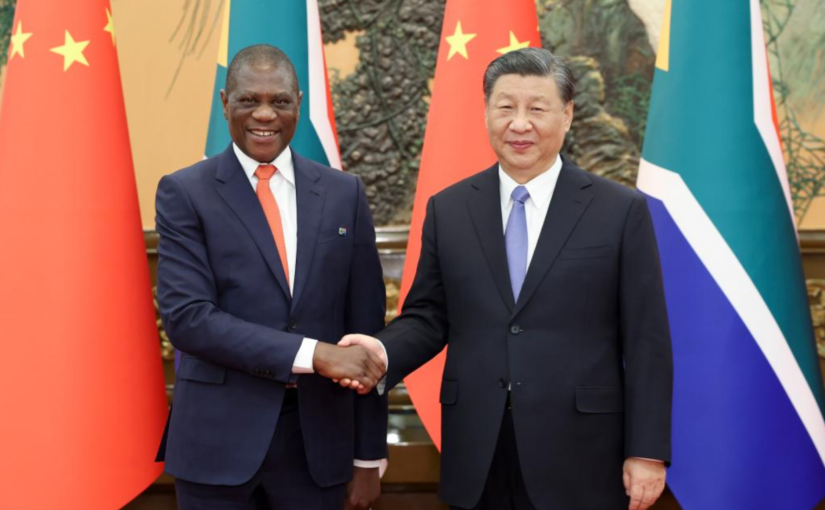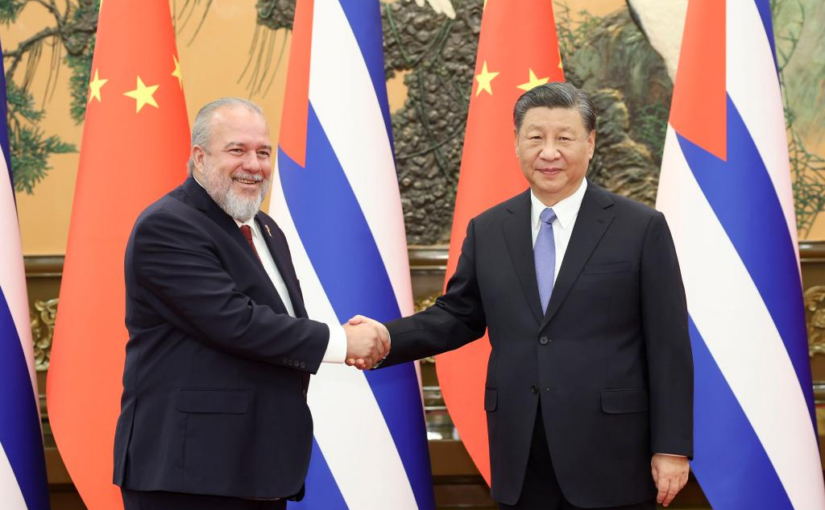In this edition of the CGTN series Leaders Talk, Wang Guan travels to Moscow to interview Vladimir Putin, shortly before the Russian President left for Beijing to attend the Third Belt and Road Forum for International Cooperation.
President Putin notes that, in building their relations, Russia and China have “always tried to reach a compromise, even on complicated issues inherited from the old days. Our relations have always been driven by goodwill. It helped us solve the border delimitation issues that had remained outstanding for 40 years.”
Wang Guan gives his impression of the thriving economic relations between the two countries, saying that on this visit to Moscow, he “saw that the streets and stores, including online trading platforms, were increasingly filled with Chinese brands. At the same time, Russian gas is supplied to the homes of Chinese consumers and Russian meat and dairy products, for example, are becoming more and more common in Chinese stores.”
President Putin agrees that his country and China are well on the way to meeting their joint target for two-way trade to reach 200 billion US dollars by 2024.
Turning to the Belt and Road Initiative (BRI), the Russian leader commented that: “Yes, we see that some people consider it an attempt by the People’s Republic of China to put someone under its thumb, but we see otherwise, we just see desire for cooperation. Our own ideas on the development of the Eurasian Economic Union, for example, on the construction of a Greater Eurasia, fully coincide with the Chinese ideas proposed within the framework of the Belt and Road Initiative.”
Thanks to the BRI, the countries of the Eurasian Economic Union (EAEU) have already secured $24 billion dollars’ worth of investments, Putin says, and continues:
“It seems to me that the main advantage of the concept of cooperation proposed by the Chinese side is that nobody imposes anything on anybody in the framework of this work. Everything is done within the framework of finding not only acceptable solutions, but such projects and such ways of achieving a common goal that are acceptable to all. This is what makes China today, under the leadership of President Xi Jinping, unique in building relations with others: no one imposes anything on anyone; no one forces anything on anyone, but only gives them opportunity. And, as I said, if there are difficulties, compromises are sought and always found. In my view, this is what distinguishes the Belt and Road Initiative proposed by the Chinese President from many others that countries with a heavy colonial legacy are trying to implement in the world.”
Reflecting his well-known interest, President Putin refers several times to sports, especially the martial arts and ice hockey, and to his hope to increase cooperation with China in this field, and, citing the importance of sports in his own life, states:
“Everyone knows and it’s not a secret that I come from a simple working-class family, and in the past, I had a lot of time to spend in the yard. I don’t know how my life would have turned out if I hadn’t taken an interest in sports. It doesn’t really matter what kind of sports I did, it’s important that I paid a lot of attention to it.”
Following up on what he said recently at the annual meeting of the Valdai Discussion Club, President Putin excoriated the Western verbiage about a “rules-based order”:
“Have you ever seen those rules? No, you haven’t, because no one has agreed on them with anyone. So how can one talk about order based on rules that no one has ever seen? In terms of common sense, it’s nonsense. But it is beneficial to those who promote this approach. Because if no one has seen the rules, it only means that those who talk about them are making them up themselves from time to time to their own advantage. That is the colonial approach.
“Because colonial countries have always believed that they are first-rated people. After all, they have always talked about bringing enlightenment to their colonies, that they are civilized people who bring the benefits of civilization to other nations, whom they consider second-rate people. No surprise today’s political elite, say, in the United States, talks about its exceptionalism. This is the extension of this colonial mindset, meaning that when they consider themselves exceptional in the United States, it means that other people, all the people in fact, are just some second-rate people. How else could one understand it? Those are mere vestiges of colonial thinking, nothing else.
“Our approach is quite different. We proceed from the fact that all people are equal, all people have the same rights; the rights and freedoms of one country and one nation end where the rights and freedoms of another person, of an entire state, appear. This is the way in which a multipolar world should be evolving gradually. This is exactly what we are striving for, and this is the basis of our interaction with China on the international stage.”
He also speaks about the BRICS cooperation mechanism and its recent expansion from five to 11 members, saying that “all those who have joined BRICS support the idea and concept of forming a multipolar world. No one wants to play second fiddle to some sovereign, everyone wants equal rights. And when they join BRICS, they see that we can achieve this goal by joining efforts within the framework of expansion and strengthening of such a format.”
President Putin also discusses the conflict in Ukraine and the Chinese proposal for a political solution:
“We are thankful to our Chinese friends for trying to think about ways to end this crisis. However, I would like to remind you that hostilities in Ukraine did not start with our special military operation, but way before – in 2014, when the Western countries, after having volunteered as guarantors of the agreements between President Yanukovich and the opposition, forgot about those guarantees in a matter of days and – worse still – supported a coup d’état. United States Administration officials even acknowledged spending big money on it…
“Therefore, the start of the special military operation was not the start of a war, but an attempt to end it.”
Referring to the negotiations held in the Turkish city of Istanbul, shortly after the start of the special military operation, Putin notes that agreement was almost reached, however, “as soon as we pulled our troops back from the Ukrainian capital, Kiev, the Ukrainian side committed all the arrangements to flames.” Therefore:
“Of course, we know the proposals of our Chinese friends. We highly value those proposals. I think they are absolutely realistic and could lay the foundation for peace arrangements. But, unfortunately, the opposing side does not want to enter into any negotiations. In fact, the President of Ukraine has even issued a decree prohibiting everyone – including himself – to conduct any negotiations with us. How can we conduct negotiations if they are not willing to and even issued a regulation prohibiting such negotiations?”
Asked if there is any possibility to make progress based on the Chinese standpoint of building shared, common, and indivisible security, Putin says:
“Yes, we have always said that, too… In this context, it is extremely important for us that Ukraine stays outside any blocs. We were told as far back as 1991 – by the then US Administration – that NATO would not expand further east. Since then, there have been five waves of NATO expansion, and every time we expressed our concerns. Every time we were told: yes, we promised you not to expand NATO eastwards, but those were verbal promises – is there any paper with our signature on it? No paper? Good-bye.
“You see, it is very difficult to engage in a dialogue with people like that. I have already cited the example of the Iranian nuclear programme. The negotiations on the Iranian nuclear programme were very, very lengthy. An agreement was reached, a compromise found, and documents signed. Then came a new Administration and threw everything in the trash, as if those arrangements never existed. How can we agree on anything if every new Administration starts from scratch – begin each time from the centre of the playing field?”
The CGTN interview with President Putin is embedded below. We also reproduce the full text of the interview as published by the Russian President’s website. The quotations above are taken from the latter version.
